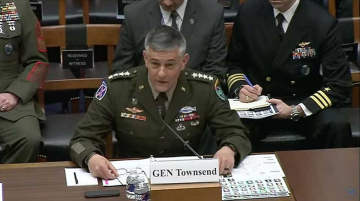China says it is closely monitoring the situation in Niger following last week’s announcement that a military junta arrested the democratically elected President Mohamed Bazoum and established a military government.
The coup potentially drives a wedge between Niger and Western powers, who supported the democratic transition – Niger’s first since its independence from France in 1960. The coup is only the latest in the region, with similar upheavals happening in Mali, Chad, Guinea, Burkina Faso, and Sudan.










